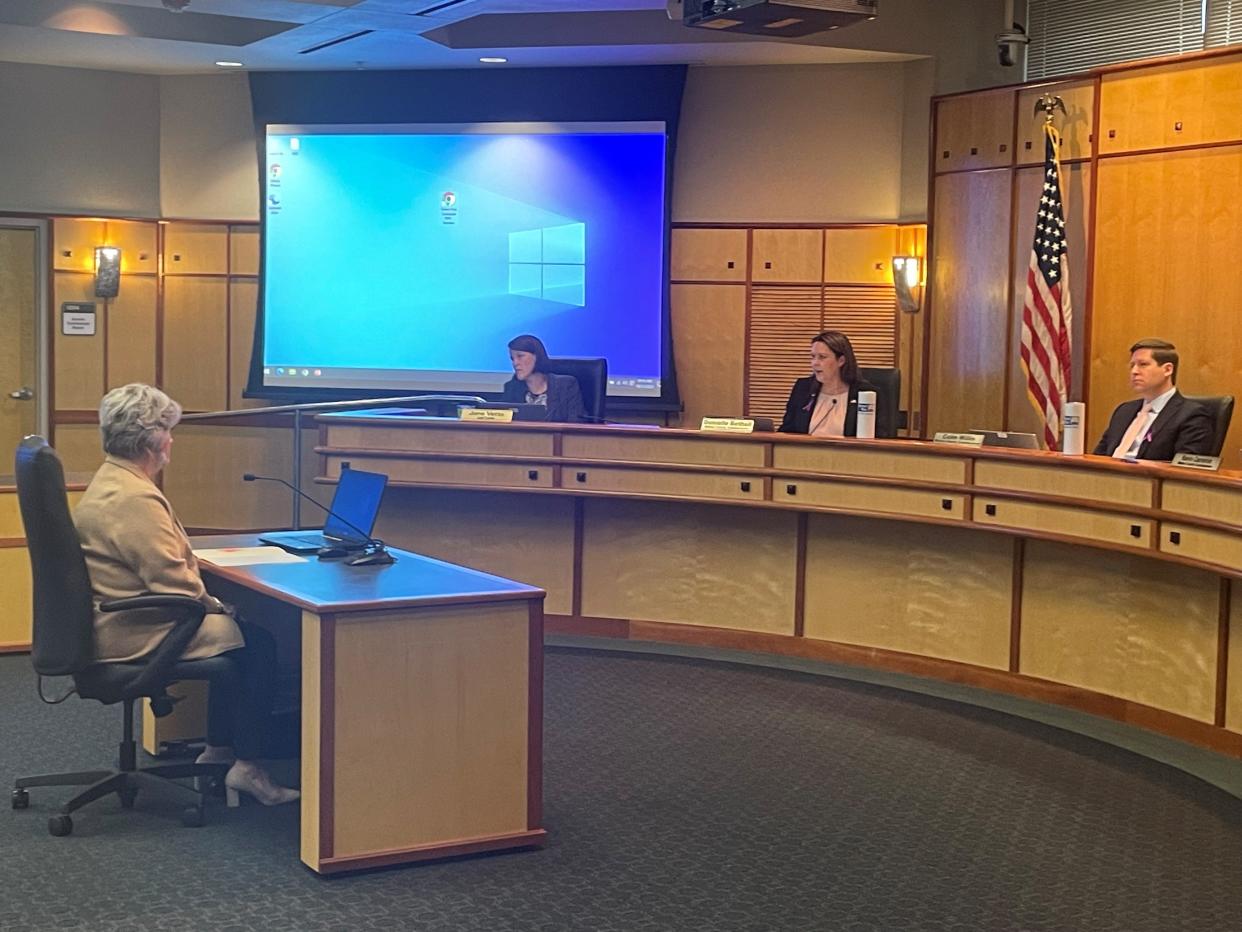Marion, Polk elected leaders call for repeal of Oregon Measure 110 drug decriminalization

Matt Maceira was in Courthouse Square Monday morning to purchase a bus ticket for a client of Be Bold Street Ministries, the Salem-based outreach ministry he runs that primarily serves the homeless population.
Maceira said when he went into the bathroom, he saw people shooting up drugs.
He said he has seen an increase in drug use since voters passed Measure 110 in 2020 to decriminalize possession of small amounts of drugs like methamphetamine, PCP, LSD and opiates.
“What this measure has done here in the streets of our city in real time has removed recourse in street level dealing and street level using,” Maceira told the Marion County Board of Commissioners Wednesday.
The measure was intended to fund and make available drug addiction treatment to addicts by using marijuana tax revenue. The state says it has allocated $265 million to drug treatment services, but some of the programs are still being set up.
But elected leaders throughout Oregon are calling for the measure to be repealed.
Marion County’s commissioners Wednesday joined 11 counties including Jackson, Coos and Polk in formally calling for the repeal of Measure 110.
“I feel super comfortable saying please repeal Measure 110,” Marion County Commissioner Colm Willis said. “I’m convinced more people will get treatment than less.”
The Marion County resolution, which was similar to the one adopted by other counties, says that there were 1,161 overdose deaths in Oregon in 2022, up from 585 in 2020.
“The provisions in Measure 110 have not achieved their stated goals, leading to a dramatic increase in overdose deaths in Oregon,” Polk County Commissioner Lyle Mordhorst said.
Marion County commissioners say Measure 110 is a failure
Some elected leaders allege fewer people are seeking treatment. They say that before Measure 110, law enforcement, prosecutors and judges frequently sent those accused of low-level drug crimes to drug diversion programs. That doesn't happen now because they don't have the same level of contact with the users.
“I strongly believe that they didn’t know what they were voting for,” Marion County Commissioner Danielle Bethell said of voters. “And I strongly believe that our legislative body has not taken any action or appropriate action.”
The state Legislature recently created a committee to come up with solutions to the drug problem and provide Measure 110 oversight. It may put forth a bill in the 2024 legislative session.
Maceira and others testified to the commissioners about their experiences with people who are using drugs.
Salem City Councilor Julie Hoy said that at Geppetto’s Italian Restaurant on Lancaster Avenue, she deals with drug users on a daily basis either in front of her business or inside it.
Marion County District Attorney Paige Clarkson has been a vocal opponent of the measure for years.
“This particular measure is a disaster and it is destroying our communities and it is destroying our public safety,” Clarkson said.
Sheriff Nick Hunter said he also supported the resolution.
“We don’t disagree, treatment has always been the answer,” Hunter said. “Now what we have unfortunately done is we have disincentivized the treatment.”
Push to change Oregon Measure 110
A group that has financial backing from prominent Oregon businesspeople including Columbia Sportswear CEO Tim Boyle and Nike founder Phil Knight is trying to get the state Legislature to alter the law and are considering referring it to voters as a ballot measure in November 2024.
Their proposal includes prohibiting the public use of hard drugs, making possession of drugs like fentanyl and heroin a misdemeanor and replacing voluntary addiction treatment with required treatment.
Polk County Commissioner Jeremy Gordon said he doesn't agree with "recent political rhetoric in the media that Measure 110 is the cause of our social ills," but voted for the resolution.
"We need to find better balance as a state and bring the public safety community to the table,” Gordon said.
Bill Poehler covers Marion and Polk County for the Statesman Journal. Contact him at bpoehler@StatesmanJournal.com
This article originally appeared on Salem Statesman Journal: Oregon Measure 110 drug decriminalization faces repeal efforts
